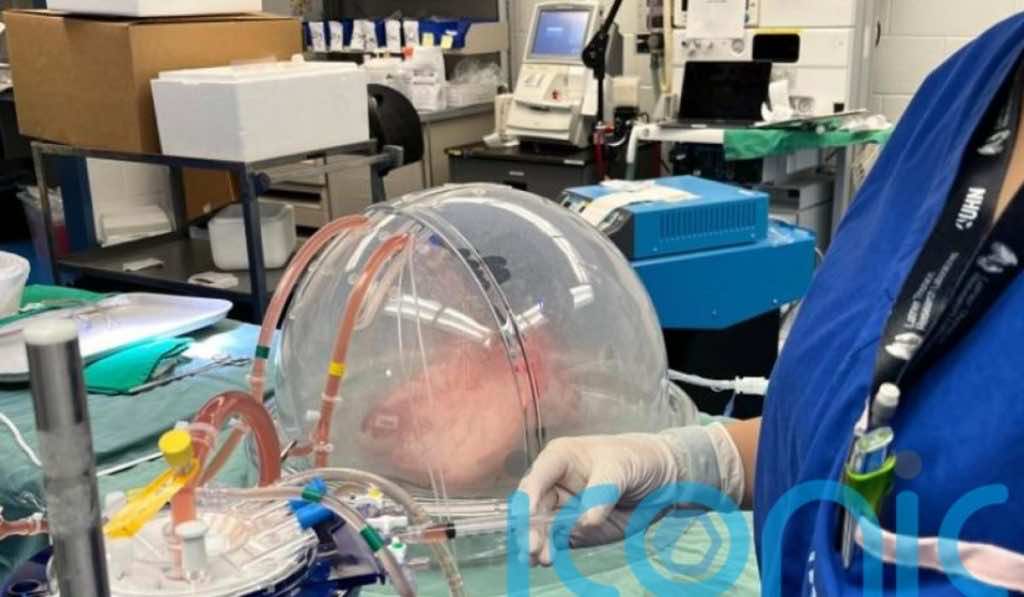A study published in Science Translational Medicine performed at the Latner Thoracic Surgery Research Laboratories and UHN’s Ajmera Transplant Centre has proved that it is possible to convert blood type safely in donor organs intended for transplantation. This finding is a crucial step towards generating universal type-O organs, which would significantly improve fairness in organ allocation and decrease mortality for patients on the waitlist.
Marcelo Cypel, a professor of surgery at the University of Toronto and a thoracic surgeon, tells “Interesting Engineering” that people with type-O blood are 20 percent more likely to die while waiting for a lung than those patients who are with type-A blood. Actually, the immune system of someone with type O blood will attack a transplanted organ that comes from a donor having any other blood type.
“Ideally, we would like to say, well, the sickest patient should be the one getting the next organ, but it’s often not the case,” he says.

The separation by blood type also leads to missed opportunities for a new lease on life if someone has the wrong blood type. “There are situations where we may get a B donor, but we don’t have a B recipient” who can receive the organ. “In that case, today, we just don’t use that organ; that organ gets buried,” he says.
The immune system is on the lookout for anything that does not seem to belong. That hypervigilance is well-suited to fighting against bacteria, viruses, protists, fungi, parasites, and toxins. Asthma, type-1 diabetes, rheumatoid arthritis, and lupus are common diseases that result from an overactive immune system.
A similar scenario would happen if someone received a blood-type-incompatible organ. Blood type is determined by the presence of antigens on the surface of red blood cells. Type-A blood has the A antigen, B has the B antigen, AB blood has both antigens and O has none. Antigens can trigger an immune response if they are foreign to our bodies. That is why we can receive blood from donors with the same blood type as ours.

Withers tells “Interesting Engineering” that their bodies probably did not develop blood types to defend against other humans’ blood. Researchers are still studying the history of blood types. It seems clear that people with some specific blood types have an extra degree of natural immunological protection against certain diseases.
See the full article here: Ex vivo enzymatic treatment converts blood type A donor lungs into universal blood type lungs


